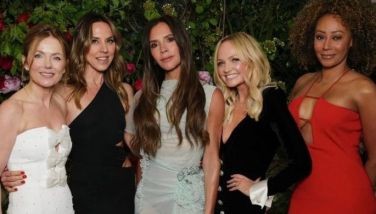How ‘Payola Scandal’ gave birth to OPM
Orly Ilacad and Vic del Rosario Jr. almost went to jail in 1976. It would have meant an end to the dreams that they were just bringing to reality as president and vice-president of the hot independent label Vicor Music. Besides, it was the time of Martial Law, certainly a very bad time for anybody to land behind bars.
The reason was what is now referred to as the Payola Scandal. Jukebox King Victor Wood, another singer named Julius Obregon and entertainment writer Oskee Salazar exposed that Vicor had been paying payola to radio disc jockeys to get their record releases played.
Payola had been a hidden but common practice between record producers and disc jockeys since music became big business. It is considered grease money and illegal but it has existed for ages. The expose trio probably got the idea from the rock and roll payola scandal in the US in 1960 when several DJs went to jail for tax evasion. Not because they accepted payola but because they did not declare their payola income.
Note that the recently departed Wood was then one of Vicor’s biggest-selling artists. I do not know what caused the rift between him and his bosses but it was bruited about that the reason was the sudden rise of a new artist with an exciting sound named Rico Puno. Wood reportedly felt that the reason for Puno’s rise was that Vicor was paying payola to get the newbie’s records like The Way We Were played on the radio. As if Puno needed payola to be played.
The government initiated an investigation into the payola expose. It was a difficult time for record producers. Although the expose targeted the Vicor bosses, its outcome after those hearings at the Batasang Pambansa would certainly affect the entire music industry.
As the hearings heated up, Juan Ponce Enrile, then the Minister of Defense, stepped into the fray. As Del Rosario remembers the conversation at Camp Crame, JPE was very direct: “Bakit kayo nagbibigay ng payola?” Del Rosario came clean, “Para po matugtog ang mga plaka namin.” The next question came quick, “Bakit hindi ba kayo natutugtog? And the answer was, “Hindi.”
While local music had already made a lot of progress during that time, the sad fact remained that only a few radio stations had been giving airplay to Filipino artists. Most of the FM radio stations with a music format at that time played only foreign records like the Carpenters, Jackson 5, Commodores and others.
The success of the pioneering Manila Sound recordings by Hotdog was proof that Filipino pop music would sell if played in pop radio stations. Hotdog’s record label Villar Music owned a high-rating radio station, DZBM, where Pers Lab and Miss Universe ng Buhay Ko were given very good airplay.
The influential journalist Teodoro F. Valencia brought the problem to the residents of Malacanang, who were known for having a soft spot for the arts, especially music. The reply that came back was, “How can we help?” and the answer was, “They need airplay.” And they got airplay, thanks to a Decree issued by President Ferdinand Marcos.
Memorandum Order No. 75-31 from the Broadcast Media Council in 1975 ordered all radio stations to play at least one original Pilipino music every hour. The order was amended to three Filipino songs every hour a year later. In 1987, an Executive Order from President Corazon Aquino increased this to four songs every hour while President Benigno Aquino Jr. ordered strict monitoring of the order.
Before those happened though, Del Rosario was asked to come up with a definition of what is original Pilipino music.
And it was this: “Original Pilipino music is a recording of a song with words and music composed by a Filipino composer and performed by a Filipino artist; a song composed by foreign composers and recorded by a Filipino artist; a song with music composed by a foreign composer with words written by a Filipino lyricist and performed by a Filipino artist; and a song composed by a Filipino composer and performed by a foreign artist.”
Original Pilipino Music has been shortened to OPM and now stands for other things but this definition of what is original Pilipino music from 1975 still stands today.
- Latest
- Trending
































